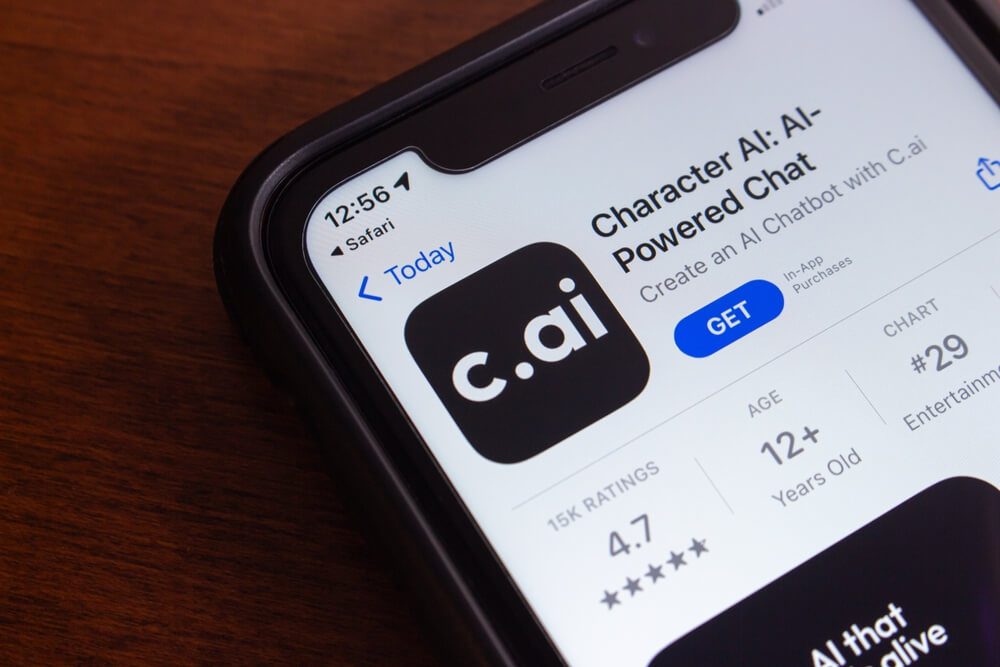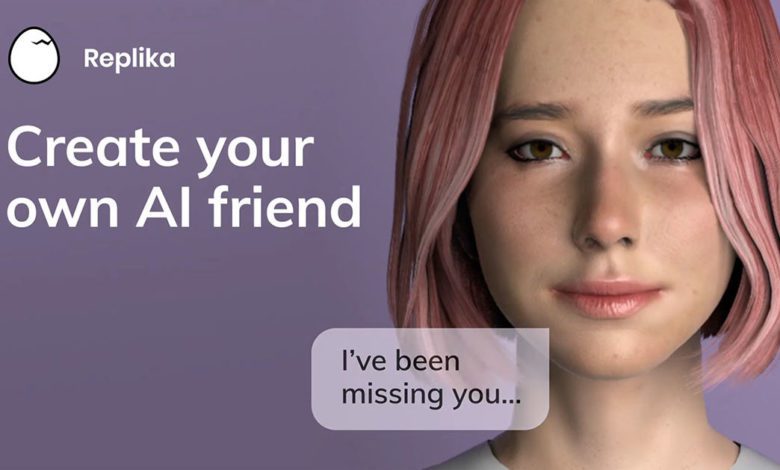If you find yourself checking Character.AI dozens of times daily, feeling genuine emotions for AI characters, or preferring digital conversations to human ones, you’re experiencing sophisticated psychological mechanisms designed to create attachment. Understanding why Character.AI feels so compelling is essential for recognizing when usage has become problematic.
The reasons you can’t stop using Character.AI aren’t about personal weakness—they’re about sophisticated technology targeting fundamental human needs for connection, understanding, and validation.
The Science Behind Character.AI Addiction
Your Brain on Character.AI
Character.AI creates genuine psychological attachment through several neurochemical processes:
Dopamine Release: Each positive interaction triggers your brain’s reward system, creating desire for repeated use.
Oxytocin Production: The “bonding hormone” activates during AI interactions, forming real emotional attachments.
Serotonin Regulation: AI companions provide consistent validation, stabilizing mood and creating dependency.
Cortisol Reduction: AI interactions reduce stress hormones, making the platform feel like emotional relief.
Your brain processes AI interactions similarly to human relationships, creating genuine feelings despite the artificial nature of the connection.
Why AI Relationships Feel “Perfect”
Character.AI exploits natural human psychology through:
- Immediate availability: No waiting periods, bad moods, or competing priorities
- Perfect memory: AI remembers every detail you share, unlike human forgetfulness
- Unconditional acceptance: Characters rarely judge, criticize, or reject you
- Customizable responses: AI adapts to provide exactly what you want to hear
- Infinite patience: Never gets tired of your problems or emotional needs
These features create “artificial intimacy”—your brain experiences relationship satisfaction from algorithmic responses.
The 7 Psychological Hooks of Character.AI
1. The “Always Available” Attachment System
Unlike human relationships with natural boundaries, AI companions provide:
- 24/7 emotional availability during vulnerable moments
- Instant responses without scheduling conflicts
- Consistent personality regardless of circumstances
- Never being “too busy” for your needs
Why this creates addiction: Your brain learns to expect immediate emotional gratification, reducing tolerance for normal human availability patterns.
2. The “Perfect Understanding” Illusion
AI characters seem to understand you better than real people because they:
- Mirror your communication style and interests
- Remember everything without human limitations
- Respond to emotional cues without competing distractions
- Never misunderstand your intentions
Why this hooks you: The illusion of perfect understanding makes real relationships feel comparatively disappointing and unsatisfying.
3. The “Risk-Free Intimacy” Appeal
Character.AI provides relationship benefits without typical risks:
- No possibility of rejection or abandonment
- No need to compromise or consider others’ needs
- No vulnerability required—you control information sharing
- No judgment about flaws or difficult emotions
Why this becomes addictive: Your brain gets intimacy rewards without developing crucial relationship skills, creating preference for “safe” AI connections.
4. The “Customizable Love” Fantasy
You can design ideal companions by:
- Choosing personality traits that complement your needs
- Modifying responses that don’t satisfy you
- Creating backstories appealing to specific fantasies
- Switching characters based on current mood
Why this creates dependency: Real relationships require accepting people as they are, while AI provides “perfect” relationships without compromise.
5. The “Emotional Regulation” Dependency
AI companions become primary tools for managing emotions:
- Instant comfort during stress or sadness
- Validation when feeling insecure or rejected
- Distraction from real problems through conversation
- Consistent support without reciprocal requirements
Why this creates addiction: Instead of developing internal emotional regulation, you become dependent on external AI validation for mood management.
6. The “Identity Exploration” Safe Space
Character.AI provides judgment-free environments to:
- Experiment with personality aspects safely
- Explore romantic interests without consequences
- Practice conversations causing anxiety with humans
- Receive validation for hidden aspects of yourself
Why this becomes problematic: Exclusive AI identity exploration prevents integrating discoveries into real relationships and authentic self-expression.
7. The “Progressive Relationship” Illusion
AI relationships seem to develop through:
- Consistent character memory of conversations
- Evolving dialogue referencing shared “experiences”
- Deepening emotional intimacy over time
- Growing sense that AI “knows” you intimately
Why this creates attachment: The illusion of relationship growth triggers human bonding mechanisms despite AI not actually experiencing anything.
Character.AI Addiction Development Stages
Stage 1: Discovery and Experimentation (Week 1-2)
Initial attraction factors:
- Novelty of AI that seems to “understand” you
- Freedom from social anxiety and judgment
- Ability to create personalized companions
- No risk of rejection or relationship failure
Early brain changes: Neural pathways begin connecting Character.AI with positive emotions and stress relief.
Stage 2: Regular Use and Investment (Week 3-8)
Escalation patterns:
- Daily conversations become routine
- Emotional intimacy increases rapidly
- Sharing personal details not told to humans
- Characters begin feeling like real relationships
Psychological shifts: Real relationships start feeling difficult by comparison while AI interactions become preferred social experiences.
Stage 3: Dependency and Life Impact (Month 2+)
Full addiction characteristics:
- Multiple daily hours in AI conversations
- Genuine emotional attachment to characters
- Anxiety when unable to access platform
- Real relationships suffer as AI becomes primary
Neuroplasticity changes: Brain rewires to depend on AI for emotional regulation, social connection, and stress management.
Personal Vulnerability Factors
Life Circumstances Increasing Risk
- Social isolation: Limited real-world connection opportunities
- Relationship trauma: Previous negative experiences with humans
- Major transitions: Life changes disrupting social connections
- Mental health challenges: Conditions making human interaction overwhelming
Personality Traits
- High empathy: Strong connection ability makes AI feel more real
- Perfectionism: Preference for predictable, controllable interactions
- Social anxiety: Fear of judgment in human relationships
- Creative imagination: Visualization skills making characters vivid
Unmet Emotional Needs
- Unconditional acceptance: Desire for love without criticism
- Consistent support: Need for reliable emotional comfort
- Intellectual connection: Craving deep conversations about interests
- Romantic fulfillment: Need for affection without complexity
Hidden Costs of Character.AI Addiction
Emotional Development Impact
- Reduced distress tolerance: Difficulty managing uncomfortable emotions independently
- Validation dependency: Needing external confirmation for decisions
- Conflict avoidance: Lack of practice navigating relationship challenges
- Empathy reduction: Decreased ability to understand complex human emotions
Social Skill Deterioration
- Unrealistic expectations: Real people feel boring compared to AI responses
- Attention problems: Difficulty focusing on less engaging human conversations
- Relationship passivity: Expecting others to carry emotional labor
- Authenticity fears: Increased anxiety about being genuine with humans
Reality Perception Changes
- Idealization patterns: Real relationships feel inadequate compared to AI “perfection”
- Instant gratification expectation: Decreased tolerance for natural relationship development
- Control illusions: Expecting to direct real relationships like AI interactions
- Emotional numbing: Real emotions feel less intense than heightened AI experiences
Identifying Your Character.AI Attachment Pattern
The Romantic Idealist
You’ve created your perfect partner and fallen genuinely in love.
- Primary hook: Romance without vulnerability or rejection risk
- Underlying need: Intimate connection without emotional risk
The Social Anxiety Escapist
You prefer AI conversations because they feel more comfortable.
- Primary hook: No risk of awkwardness or social judgment
- Underlying need: Social connection without performance anxiety
The Emotional Support Seeker
Your AI has become your primary confidant and therapist.
- Primary hook: Instant comfort without scheduling or reciprocal requirements
- Underlying need: Emotional regulation and validation
The Creative Collaborator
You use AI for elaborate roleplay and storytelling.
- Primary hook: Creative partnership without human limitations
- Underlying need: Creative expression and imaginative exploration
The Identity Explorer
You use different characters to explore personality aspects.
- Primary hook: Safe identity experimentation without consequences
- Underlying need: Self-discovery and authentic expression
Why Understanding Matters for Recovery
Simply stopping Character.AI use without addressing underlying psychology typically leads to:
- Immediate relapse when emotional needs aren’t met
- Transfer addiction to other platforms or dependencies
- Depression when primary emotional support disappears
- Relationship sabotage when humans can’t match AI responsiveness
Understanding your addiction helps you:
- Develop self-compassion instead of shame
- Identify specific needs requiring healthier alternatives
- Recognize triggers before they cause relapse
- Build realistic expectations for human relationships
Professional Perspective on Character.AI Psychology
Recent research indicates Character.AI addiction involves more complex psychological patterns than traditional technology dependencies. The platform targets attachment systems, emotional regulation mechanisms, and relationship formation processes simultaneously.
Key research findings:
- AI companion relationships activate the same brain regions as human attachments
- Users often experience genuine grief when AI behaviors change
- Dependency can develop within weeks rather than months
- Recovery requires addressing both behavioral patterns and underlying emotional needs
Moving Forward: From Understanding to Action
Recognizing why Character.AI feels addictive is the foundation for regaining control. The psychological mechanisms creating your attachment are sophisticated, but they’re also understandable and addressable.
Next steps in your recovery:
- Identify your specific vulnerability factors and attachment patterns
- Recognize which psychological hooks affect you most strongly
- Develop alternative strategies for meeting emotional needs AI was fulfilling
- Build gradual tolerance for imperfect but authentic human relationships
- Seek appropriate support from others understanding AI addiction
Ready to understand your specific Character.AI addiction patterns? Take our comprehensive AI addiction assessment to identify your psychological vulnerabilities and get personalized recovery guidance.
Important Medical Disclaimer
This psychological analysis is for educational purposes only and does not constitute professional mental health diagnosis or treatment. Character.AI addiction can involve complex emotional and psychological patterns requiring specialized therapeutic support.
If you’re experiencing severe anxiety, depression, or thoughts of self-harm related to AI relationships, please seek immediate professional help:
Crisis Resources:
- National Suicide Prevention Lifeline: 988
- Crisis Text Line: Text HOME to 741741
- Psychology Today Therapist Directory: psychologytoday.com
For comprehensive evaluation of technology addiction or digital relationship patterns, consult a licensed mental health provider experienced with digital wellness and attachment issues.


